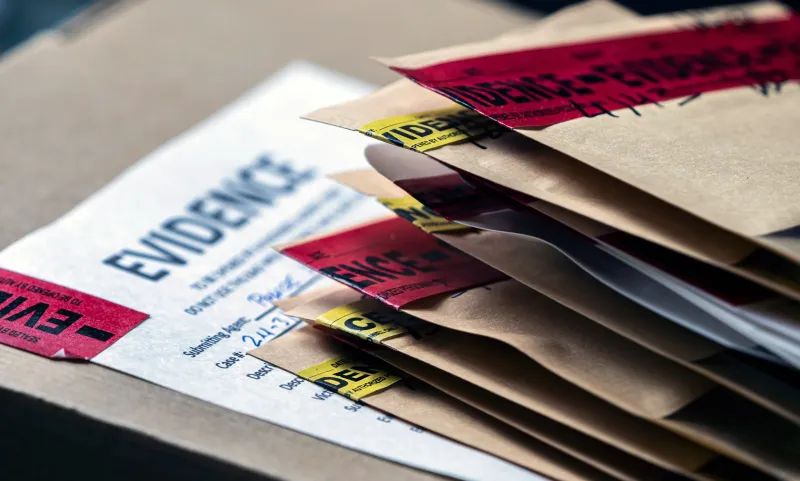Appeal Attorney in Kansas
Are you dealing with a legal challenge and thinking about filing an appeal? The appeals process can be complex, but having the right appeal attorney in Kansas can make a significant difference. An appeal involves a higher court examining a lower court’s decision to ensure the law was applied correctly.
For example, if you believe a mistake in the legal process affected your trial’s outcome, an appeal might be your route to justice. At Henderson Legal Defense, our skilled appellate attorneys are committed to providing exceptional representation. We offer free consultations to discuss your case and explore your legal options. Call us today at 913-782-4030 to start your journey toward a fair solution.
Understanding the Appeal Process
Understanding the appeal process is essential for anyone considering challenging a court decision. An appeal is a request for a higher court to review the decision of a lower court. Unlike trial courts, which focus on facts and evidence, appellate courts review legal errors and how the law was applied. This difference is critical to understanding how appellate courts work.
An appeal is a legal process where a higher court looks at the decision made by a lower court. This process is important to make sure that justice is served by fixing any mistakes that might have happened during the original trial. In civil cases, either side can ask for an appeal if they do it within the set time limit.
In criminal cases, an appeal can start after the final decision, meaning a sentence must be given before the appeal can begin. The first step in this process is to understand the reasons for the appeal and to speak with a lawyer. Appellate lawyers play a key role in spotting legal mistakes that could have changed the trial’s result and presenting these issues clearly to the appellate court.
How Long Do I Have to File an Appeal After a Conviction?
Understanding the time frame for filing an appeal is crucial to ensure your case is heard. In Kansas, the deadline for filing a notice of appeal is typically 14 days from the entry of the judgment or order you wish to challenge. This time frame is strict, and missing the deadline can result in the loss of your right to appeal.
It’s essential to act quickly and consult with a knowledgeable attorney who can guide you through the process and ensure all necessary paperwork is filed on time. Prompt action helps preserve your legal rights and sets the stage for a thorough review of your case by the appellate courts.
The Role of Appellate Courts
The appellate court system in Kansas is set up to ensure fairness by reviewing decisions made by trial courts for any legal errors. This system includes two key courts: the Kansas Court of Appeals and the Kansas Supreme Court. The Kansas Court of Appeals acts as a middle step, reviewing cases from lower courts to check if the law was applied correctly during trials. It helps fix any mistakes made in the trial courts.
The Kansas Supreme Court is the highest court in the state and has the final say in interpreting state laws and resolving important legal questions. This court picks cases that usually involve significant legal or constitutional matters, setting guidelines that affect future interpretations of Kansas law. Both courts are essential in keeping the judicial process fair and consistent across the state.
What Types of Evidence Can Be Introduced in an Appeal?
 In the appellate process, introducing new evidence is generally not allowed. Appeals focus on reviewing whether the trial court applied the law correctly, rather than re-examining the facts presented during the trial. The appellate courts base their review on the record created during the original trial, which includes transcripts, evidence, and documents submitted at that time.
In the appellate process, introducing new evidence is generally not allowed. Appeals focus on reviewing whether the trial court applied the law correctly, rather than re-examining the facts presented during the trial. The appellate courts base their review on the record created during the original trial, which includes transcripts, evidence, and documents submitted at that time.
However, there are rare situations where new evidence might be considered. This can happen if the evidence could not have been discovered with reasonable effort before the trial or if it is essential to prevent a serious injustice. In such cases, a request can be made to introduce this evidence, but it is carefully scrutinized and must meet strict legal requirements.
Understanding these restrictions is important for anyone considering an appeal, as it highlights the need to present all relevant evidence thoroughly during the initial trial. Consulting with an experienced attorney can help clarify these rules and ensure that all possible avenues for appeal are explored effectively.
Grounds for Filing an Appeal
Understanding the grounds for filing an appeal is crucial in determining whether your case warrants a review by a higher court. Appeals usually focus on legal mistakes made during the trial. These mistakes might include misinterpreting the law, wrongly allowing or excluding evidence, giving incorrect instructions to the jury, or not providing effective legal help. Additionally, errors in following legal procedures, such as violating due process rights or misapplying state law, can also be grounds for an appeal.
It’s important to remember that an appeal isn’t a new trial. Instead, it’s a review of how the law was applied during the original trial. This means new evidence usually isn’t considered. The focus is on finding and fixing legal errors that might have affected the trial. Talking with an appellate attorney is essential to evaluate whether your appeal is viable and to ensure all potential reasons for appeal are fully explored and clearly presented to the appellate courts.
Steps in the Appeals Process:
- Consultation with an Appeals Attorney: The first step is to consult with a seasoned appeals attorney. This initial meeting is crucial for assessing the merits of your case, understanding your legal options, and formulating a strategic plan for the appeal.
- Filing a Notice of Appeal: After deciding to proceed, the next step is filing a notice of appeal. This legal document must be submitted within a specific time frame, typically within 14 days of the trial court’s decision, to formally notify the court and opposing party of your intent to appeal.
- Preparation of the Record: Gathering all relevant documents, including trial transcripts, evidence, and any other pertinent materials, is essential. This comprehensive record forms the foundation of your appeal and helps in identifying any legal errors made during the trial.
- Research and Issue Identification: Appellate lawyers will meticulously review the case to identify legal mistakes that could have impacted the trial. This step involves extensive legal research to support the appeal with relevant precedents.
- Drafting Appellate Briefs: Crafting persuasive appellate briefs is a critical component of the appeals process. These briefs present legal arguments and cite precedents to support your case. Effective appellate advocacy requires a deep understanding of the law and the ability to present clear, compelling arguments.
- Submitting the Briefs: Once the briefs are prepared, they are submitted to the appellate court. This step is crucial as it forms the core of your appeal, outlining the legal grounds for challenging the lower court’s decision.
- Oral Argument Preparation: If the appellate court schedules an oral argument, preparation is key. Your attorney will develop a strategy to effectively present your case, addressing potential questions from the judges and reinforcing the arguments made in the briefs.
- Oral Argument Presentation: During the oral argument, your attorney will present the case before the appellate judges. This is an opportunity to emphasize key points, clarify any ambiguities, and respond to the judges’ inquiries.
- Awaiting the Court’s Decision: After the oral argument, the appellate court will deliberate and issue a written opinion. This decision will determine whether the lower court’s ruling is upheld, reversed, or remanded for further proceedings.
- Further Appeals (if necessary): If the appellate court’s decision is unfavorable, further appeals may be possible, such as petitioning the Kansas Supreme Court or the Tenth Circuit Court of Appeals for federal cases.
Each step in the appeals process is vital for reaching a fair solution. Our skilled appeals attorneys are committed to guiding you through every stage, ensuring all procedural rules are carefully followed and your case is presented clearly and effectively.
Potential Outcomes
Understanding the potential outcomes of an appeal is important to set realistic expectations. When you file an appeal, there are a few possible results that can significantly impact your case. The appellate court might agree with the lower court’s decision, which means nothing changes, and the original ruling stays the same. Alternatively, they could overturn the decision, leading to a new trial or a different conclusion.
In some situations, the court might send the case back to the trial court for further action or corrections. The result depends on the specific legal errors identified and how well your attorney presents your case. Knowing these possibilities helps you prepare for what might happen next in your legal journey.
Types of Cases We Handle
At Henderson Legal Defense, we are skilled in managing a wide range of cases during the appeal process, providing thorough legal support for our clients. We are experienced in both criminal and civil appeals, offering tailored strategies for each specific case. Here’s a simple list of the types of cases we handle:
Criminal Appeals
- DUI/DWI Defense: Challenging wrongful DUI/DWI convictions or sentences.
- Domestic Violence: Appealing convictions or sentences related to domestic violence charges.
- Drug Charges: Handling appeals for cases involving drug possession, trafficking, or manufacturing.
- Violent Crimes: Addressing appeals for convictions related to assault, robbery, or murder.
- Expungement: Seeking to overturn decisions denying expungement of criminal records.
- Felonies: Managing appeals for serious felony convictions.
- Juvenile Law: Advocating for appeals in cases involving juvenile offenders.
- Traffic and Municipal Violations: Handling appeals for traffic offenses and municipal code violations.
Civil Litigation Appeals
- Personal Injury: Appealing court decisions in personal injury lawsuits.
- Medical Malpractice: Handling appeals in cases involving medical negligence or malpractice.
- Contract Disputes: Addressing appeals related to breaches of contract or contract interpretation.
- Product Liability: Managing appeals in cases involving defective products causing harm.
- Child Custody: Handling appeals in family law cases concerning child custody arrangements.
- Wrongful Death: Appealing decisions in cases involving wrongful death claims.
Post-Conviction Relief
- Habeas Corpus Petitions: Filing petitions challenging the legality of a person’s detention.
- New Evidence: Seeking relief based on newly discovered evidence that could impact the conviction.
- Legal Rights Violations: Addressing violations of legal rights that occurred post-trial.
Each type of case comes with its own unique challenges, requiring a customized legal approach to achieve success. Our attorneys are dedicated to providing legal guidance, ensuring that all arguments are clearly and effectively presented. We approach every appeal with a well-thought-out, strategic plan to maximize the chances of a favorable resolution.
Why You Need an Experienced Appeals Attorney

Having an experienced appeals attorney can greatly improve your chances of success in complex legal matters. The appeals process is detailed and requires a deep understanding of legal principles and procedures. Appeals attorneys are skilled in identifying trial errors, writing strong appellate briefs, and making persuasive arguments in court.
To start the appeal process, understanding the specific steps and requirements is critical. Seasoned appeals attorneys help guide you through this, ensuring all rules are followed and your case is clearly presented. Crafting effective appellate briefs involves simplifying complex legal issues into clear arguments, and thorough research is vital to find precedents that support your case.
Avoiding common mistakes during appeals can significantly increase your chances of success. Skilled attorneys are adept at identifying and addressing these pitfalls, ensuring that your appeal is presented effectively with the best possible chance of success.
How Henderson Legal Defense Can Help You
At Henderson Legal Defense, we are committed to standing by our clients to achieve justice. Our team of appellate attorneys is skilled in handling the appeals process, ensuring every legal argument is carefully crafted and clearly presented. We focus on identifying important legal errors that could have influenced your trial, using our knowledge of both state and federal appellate courts to aim for positive results.
We approach each case with a personalized strategy, understanding that every legal challenge is different. Our dedication to thorough research, careful planning, and effective advocacy ensures that your case is managed with care and attention to detail.
Don’t leave your appeal to chance. Choose Henderson Legal Defense for a partner who will work hard for your rights and strive for a fair resolution. Contact us today at 913-782-4030 to schedule your free consultation and take the first step toward justice.


